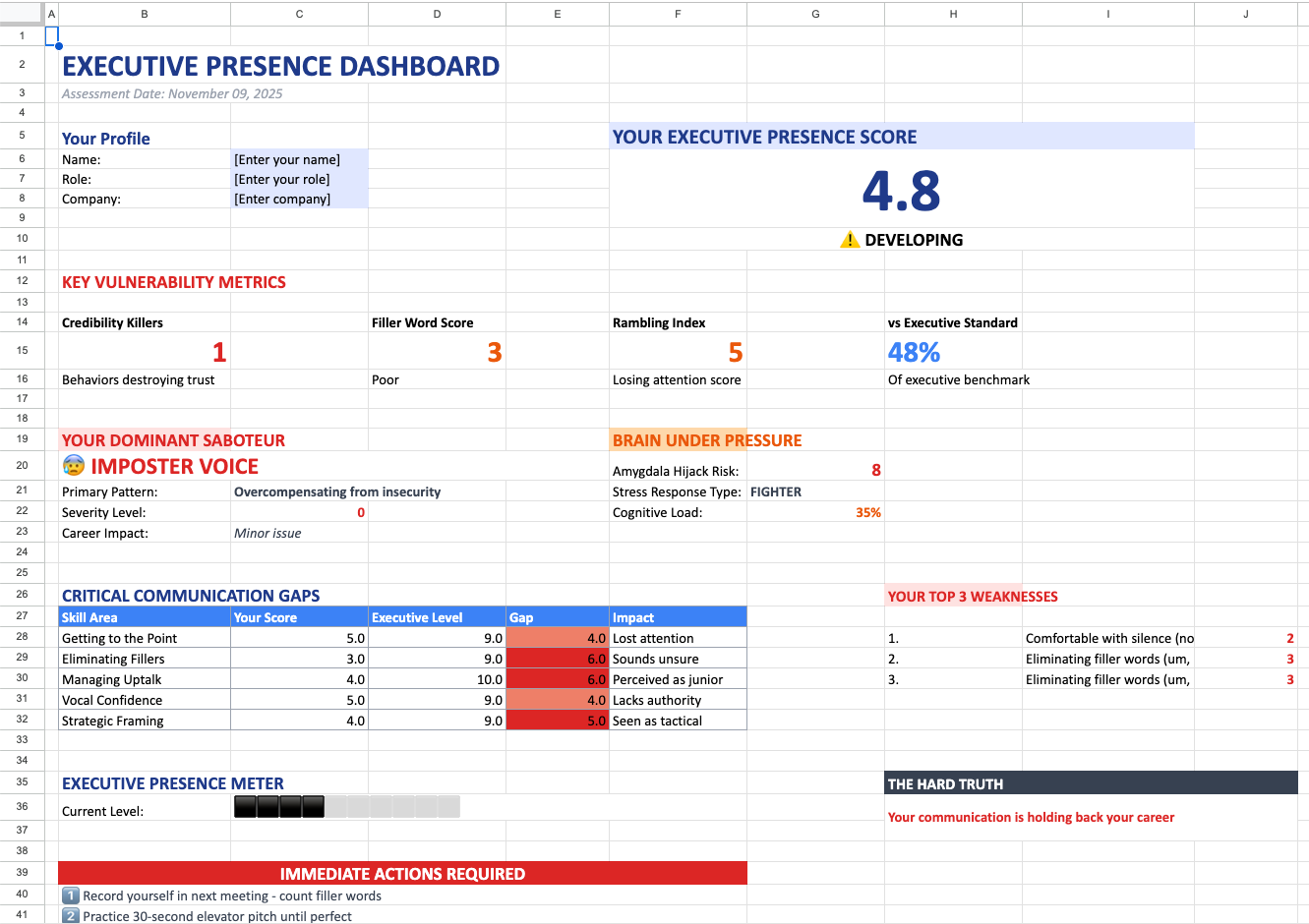4 Seconds: How Fast Board Directors Decide You're 'Not Strategic
True story: Last month, I decided to record myself presenting to a board member. I thought I’d done well. Strong content. Clear roadmap. Data-backed recommendations.
Then I listened to the playback.
47 filler words in 8 minutes. Uptalk on every third sentence. And it took me 2 minutes and 18 seconds to get to my actual point.
I sounded like a junior analyst, not a product leader who’s been doing this since 2007.
Jay here.
After 17,000+ podcast downloads interviewing product leaders, building Product Coalition to 1M+ rea…




